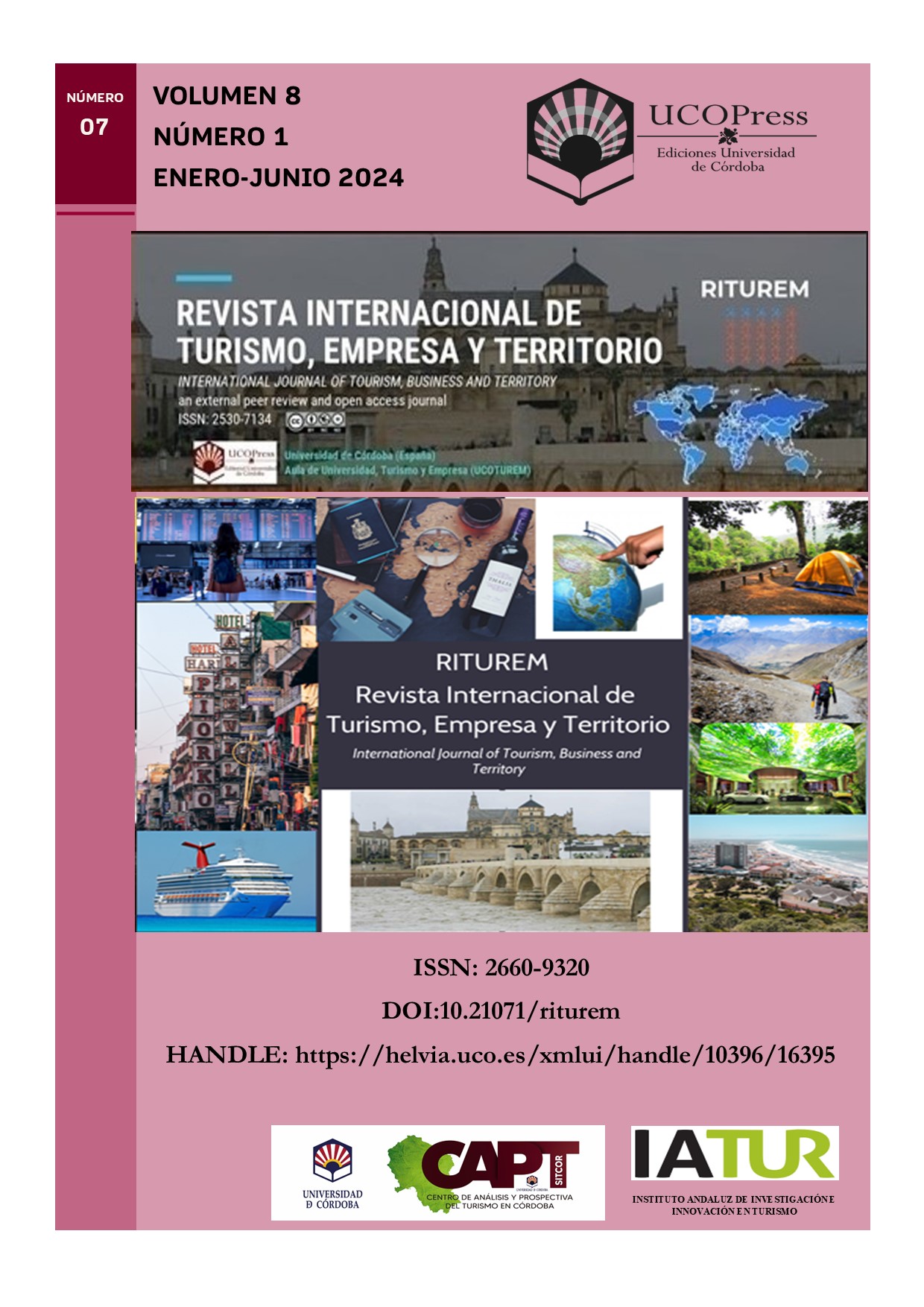Article withdrawn due to duplication
##plugins.themes.bootstrap3.article.main##
Resumo
The Editorial Board of the Revista Internacional de Turismo, Empresa y Territorio (RITUREM) formally announces the withdrawal of the manuscript:
“Tourism Response and Recovery to Covid-19 in Historic Urban Destinations (Cases of Belgium and the Netherlands)”
The withdrawal is solely due to an editorial error that resulted in the duplication of a version previously published in Via Tourism Review (DOI: https://doi.org/10.4000/viatourism.8393 ).
We wish to make clear that the authors bear no responsibility for this situation, which stems exclusively from an internal administrative oversight.
Editorial Board of RITUREM
Downloads
##plugins.themes.bootstrap3.article.details##

Este trabalho encontra-se publicado com a Creative Commons Atribuição-NãoComercial 4.0.
Avisos de derechos de autor propuestos por Creative Commons
Política propuesta para revistas que ofrecen acceso abierto
Aquellos autores/as que tengan publicaciones con esta revista, aceptan los términos siguientes:
- Los autores/as conservarán sus derechos de autor y garantizarán a la revista el derecho de primera publicación de su obra, el cuál estará simultáneamente sujeto a la licencia Creative Commons CC BY-NC 4.0 (https://creativecommons.org/licenses/by-nc/4.0/deed.es ) , que permite a terceros compartir la obra y permitir obras derivadas siempre que se indique su autor, su primera publicación en esta revista y cuando no se haga uso comercial.
- Los autores/as podrán adoptar otros acuerdos de licencia no exclusiva de distribución de la versión de la obra publicada (p. ej.: depositarla en un archivo telemático o en un repositorio institucional o publicarla en un libro monográfico) siempre que se indique la publicación inicial en esta revista.
- Se permite y recomienda a los autores/as difundir su obra a través de Internet (p. ej.: en archivos telemáticos y repositorios institucionales o en su página web) antes, durante y con posterioridad al proceso de envío, lo cual puede producir intercambios interesantes y aumentar las citas de la obra publicada. (Véase El efecto del acceso abierto).
